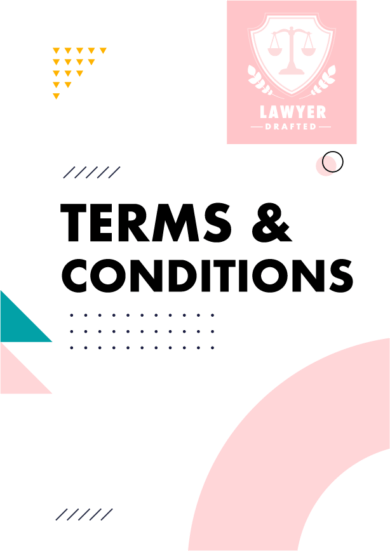Our Policies are highly customizable to ensure they are covering your unique business needs.
Hi there and welcome to Privacy Terms
We are committed to providing you with the best value solution on the internet.
Our generators are easy to use and create highly customizable policies to suit your business requirements.
There are no ongoing fees or hidden costs, just one low price which covers all clauses and then the policy is yours.



A basic Privacy Policy needs to include the following:
Data Collection: An explanation of the type of data your websites collects and why you collect it.
Security of Personal Data: A clause which explains how you keep your Users personal data secure.
Personal Data Sharing: You need to include who Personal Data is shared with, if anyone.
Cookies: Outlines what cookies are and what types of cookies you use on your website.
Affiliate Disclosure:Disclose if your website uses affiliate links and earns a commission.
Privacy Policy amendments: How your website makes updates to this policy available to your Users.
To know more about what you need to include in your privacy policy, please refer to our articles on Privacy Policy.
Data subjects rights: Does your website transfer any personal data to another country.
Details of the transfer of personal data to a third country: A clause which explains how you keep your Users personal data secure.
The right to lodge a complaint with the correct authority: You need to include who Personal Data is shared with, if anyone.
The right to withdraw consent: Outlines what cookies are and what types of cookies you use on your website.
Data retention: Disclose if your website uses affiliate links and earns a commission.
Automated decision making: How your website makes updates to this policy available to your Users.
To find out more on GDPR Compliance, please refer to the 7 key principles of GDPR & our other GDPR articles.
To be compliant with a number of International laws, including GDPR, CalOPPA and Australian Privacy Act 1988, your privacy policy is required to be in a prominent, easily located place on your website. Check out your options in this post.
You can create your privacy policy by using our customizable privacy policy template. Use our free privacy policy generator to create a privacy policy suitable to your website in minutes. To learn more on how to create your privacy policy, terms & disclaimer using our generators, please refer to our post here.
Google Analytics, a free website analysis tool from Google, tracks traffic on your website by placing a cookie on visitors browsers and thereby collecting information. As part of Google Analytics Terms and Conditions you are required to have a privacy policy and secondly, you have begun to collect personal information so you are now required by law to have a privacy policy in place. Read our Article at https://privacyterms.io/privacy/google-analytics-privacy-policy/ to learn more.
The Data Protection Act (DPA) 2018 is the UK's updated data protection law which became effective on 25th May 2018 and was recently amended on the 1st January 2021 to reflect the United Kingdom's exit from the EU. It sits alongside the UK GDPR and replaces the Data Protection Act 1998. The United Kingdom is […]
A Privacy Policy is a legal requirement for any business or website, but where should you put your Privacy Policy on your website? To be compliant with a number of International laws, including GDPR, CalOPPA and Australian Privacy Act 1988, your privacy policy is required to be in a prominent, easily located place on your […]
Whether you own a website, blog or eCommerce store you may find yourself wondering, do I need a privacy policy? The short answer is, if you collect personal data from your readers or users in any form, then yes you do need a privacy policy. The three most important reasons you will require a privacy […]